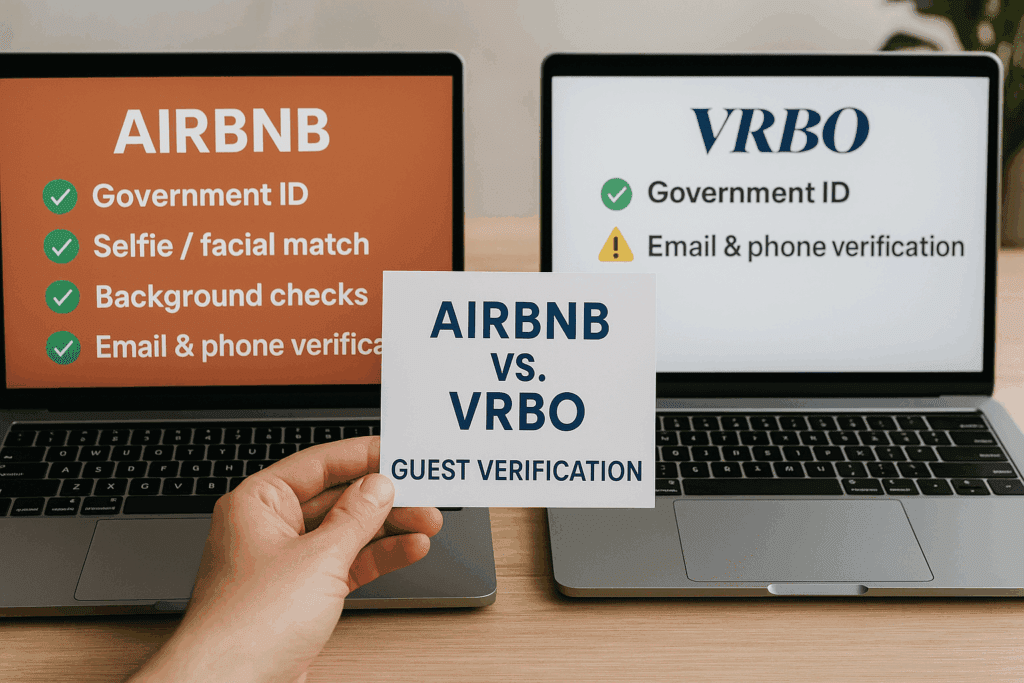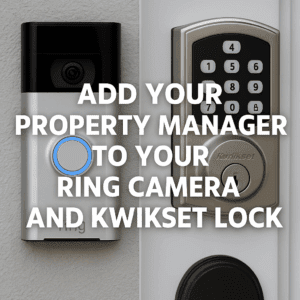🔍 Why Guest Verification Matters for Short-Term Rental Hosts
As a short-term rental host, your property is your business—and your peace of mind depends on who you let through the door. Both Airbnb and VRBO have verification systems designed to protect hosts from fraud and misuse, but the two platforms take noticeably different approaches.
At Short Term Stay Pro, we help hosts and property managers understand these systems so you can make smarter decisions about guest screening and security.
🧾 Airbnb Guest Verification: The Full Identity Check
Airbnb’s verification process is more structured and mandatory for every guest before they can book.
Here’s what guests must provide:
✅ Government-issued photo ID (driver’s license, passport, or national ID)
✅ Selfie verification that matches their ID photo
✅ Email, phone, and payment verification
✅ Occasional background checks in select regions
Airbnb uses AI-based identity matching to ensure the person creating the account is the same one showing up to the stay.
For hosts: this creates a stronger level of assurance that your guest’s identity is verified before they arrive—reducing risks like fake profiles, stolen credit cards, or party-related damages.
🏡 VRBO Guest Verification: Flexible but Less Rigid
VRBO’s system prioritizes confirming contact and payment authenticity over verifying a government ID for every guest.
Every guest must verify:
✅ Email address and phone number
✅ Payment method (credit card, PayPal, etc.)
However, government ID verification is only required for some guests, typically when a booking triggers a risk review. VRBO may also ask for the guest’s home address and date of birth—but not always a photo ID.
For hosts: this means VRBO offers more flexibility, but you may want to add your own screening layer, especially for high-value or last-minute bookings.
⚖️ Side-by-Side Comparison: Airbnb vs. VRBO Guest Verification
| Feature | Airbnb | VRBO |
|---|---|---|
| Government ID required | ✅ Always | ⚠️ Sometimes |
| Selfie / facial match | ✅ Yes | ❌ No |
| Background checks | ✅ Limited regions | ❌ No |
| Email & phone verification | ✅ Yes | ✅ Yes |
| Payment verification | ✅ Yes | ✅ Yes |
| Verification timing | Before booking | After booking (usually) |
| Risk screening | Automated AI system | Selective, manual triggers |
🔐 Which Platform Provides More Safety for Hosts?
In general, Airbnb’s verification process is stronger and more automated, while VRBO gives hosts more independence.
That said, VRBO tends to attract families and traditional vacation travelers, which can naturally lower risk. Airbnb, by contrast, serves a broader traveler base, including shorter stays and more spontaneous trips.
The right platform for you depends on your property type, target guests, and how much control you want over guest vetting.
💡 Short Term Stay Pro Tip: Add Your Own Guest Screening Steps
Even with platform verification, it’s smart to add your own system of checks.
At Short Term Stay Pro, we recommend:
Requesting a copy of the guest’s ID before check-in
Having guests sign a rental agreement using their legal name
Asking a few simple purpose-of-stay questions
Using third-party screening tools for repeat protection
These small steps can prevent big problems and help you maintain the professional standard your brand deserves.
While Airbnb leads in automated identity verification, VRBO offers hosts more flexibility and control. The best hosts combine platform protections with their own smart screening process.
Understanding how these systems work enables you to stay proactive, protect your property, and establish a reputation for safe, professional hosting.



